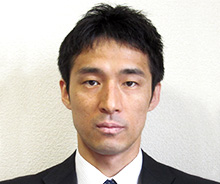On Friday October 13th 2023, we have the pleasure to welcome in SPINTEC Diana C Leitao (Eindhoven University of Technology, The Netherlands) and Shunsuke Fukami (Tohoku University, Japan). They will give us two seminars on magnetoresistive sensors and magnetic tunnel junctions from 10:00 to 12:00.
Place : IRIG/SPINTEC, auditorium 445 CEA Building 10.05 (access to CEA needs pass)
zoom link : https://univ-grenoble-alpes-fr.zoom.us/j/5115826964
access : Persons who do not have a CEA pass must request an entry authorization sufficiently in advance, before October 02th at admin.spintec@cea.fr
Detailed program, abstracts and short bios :
10:00 to 11:00 Diana C Leitao :
Designing magnetoresistive sensors with tuneable characteristics
Abstract : Magnetoresistive sensors can deliver high sensitivity and spatial resolution in magnetic field detection, ideal to leverage applications in navigation, robotics or biomedicine. Being able to manipulate the device’s properties, as needed and during operation, has the potential to push further the limits of performance, and broaden applications of spintronic sensors. In this talk, two approaches to engineer these tuneable magnetic sensors will be introduced. One focus on local modification of the sensing layer magnetic anisotropy by nano-inclusions, with direct impact on linearity and coercivity. The second explores light as an external trigger to change the reference axis orientation and thus alter the sensitive direction. The discussion will include considerations regarding the tuning of the thin-film multilayers or of the patterned geometries to demonstrate these concepts. Such strategies open pathways to design versatile sensing devices with on-demand tuneable characteristics.
Biography : Diana Leitao graduated in Applied Physics from University of Porto, and has a PhD in Physics from University of Porto and Materials Science Institute of Madrid ICMM-CSIC. She then joined INESC Microsystems and Nanotechnologies in Lisbon, first as a postdoctoral researcher, and later as a FCT Investigator Starting Grantee to lead her research line in magnetic nanodevices. Since September 2021 she is an Assistant Professor at Eindhoven University of Technology, Department of Applied Physics. Her research focus is on exploring novel thin-film stackings, designs, and hybrid technology integration to improve the performance of magnetoresistive sensing devices and provide added functionalities. Diana Leitao actively contributes to the international magnetism community via IEEE Magnetics Society and European Magnetism Association (EMA) where she is currently the EMA officer for Industrial Relations. She is also involved in the organization of main conferences in her research area.
11:00 to 12:00 Shunsuke Fukami :
Magnetic tunnel junction for nonvolatile memory and probabilistic computing
Abstract : Magnetic tunnel junction (MTJ) serves as functional devices for various applications. Magnetic sensors and nonvolatile memories with MTJs are commercially available and its applications to unconventional computing has recently gathered a growing attention. In this seminar, I will present our recent work on MTJs to be applied for nonvolatile memory compatible with deeply-scaled semiconductor technologies and probabilistic computing that addresses computationally hard problems. For nonvolatile memory applications, it is crucial to establish a technology to exhibit high performance at ultrasmall scale down to less than 10 nm, or X nm. We have shown that utilization of shape anisotropy [1] and magneto-static coupling [2] both of which become evident in X-nm regime allows the MTJs to meet the requirements for Flash-like [2] and SRAM-like [3] applications.
For probabilistic computing, MTJs are designed to generate random telegraph noise under thermal fluctuations, constituting the probabilistic bits [4]. We have shown proof-of-concepts of the probabilistic computers with MTJs performing combinatorial optimization [5], machine learning [6], and quantum simulation [7]. We have also revealed key physics to enhancing the performance of MTJs for large-scale problems [8,9]. The work has been carried out in collaboration with H. Ohno, B. Jinnai, J. Igarashi, S. Kanai, W. A. Borders, K. Hayakawa, K. Kobayashi, H. Kaneko of Tohoku University as well as S. Datta of Purdue University and K. Y. Camsari of the UC Santa Barbara. The work is supported in part by the JST-OPERA JPMJOP1611, JST-CREST JPMJCR19K3, JST-AdCORP JPMJKB2305, MEXT X-NICS JPJ011438, and JSPS KAKENHI 19H05622.
[1] K. Watanabe et al., Nat. Commun. 9, 663 (2018).
[2] B. Jinnai et al., IEDM2020, 24.6.1 (2020).
[3] B. Jinnai et al., IEDM2021, 2.6.1 (2021).
[4] K. Y. Camsari et al., Phys. Rev. X 7, 031014 (2017).
[5] W. A. Borders et al., Nature 573, 390 (2019).
[6] J. Kaiser et al., Phys. Rev. Appl. 17, 014016 (2022).
[7] A. Grimardi et al., IEEE IEDM 2022, 22.4 (2022).
[8] S. Kanai et al., Phys. Rev. B 103, 094423 (2021).
[9] K. Hayakawa et al., Phys. Rev. Lett. 126, 117202 (2021).
Biography : Shunsuke Fukami is a Professor of the Research Institute of Electrical Communication (RIEC), and the director of the Center for Science and Innovation in Spintronics (CSIS) of Tohoku University, Japan.
His areas of expertise include spintronics physics/materials/devices and their application to integrated circuits and novel-computing hardware.
He received his doctor degree in 2012 from Nagoya University. He joined NEC Corporation in 2005 and moved to Tohoku University in 2011. He received a number of awards for his research, including the Young Scientists’ Prize of Science and Technology by the Ministry of Education, Culture, Sports, Science and Technology (MEXT) in 2015, Japan Society for the Promotion of Science (JSPS) Prize in 2023.






